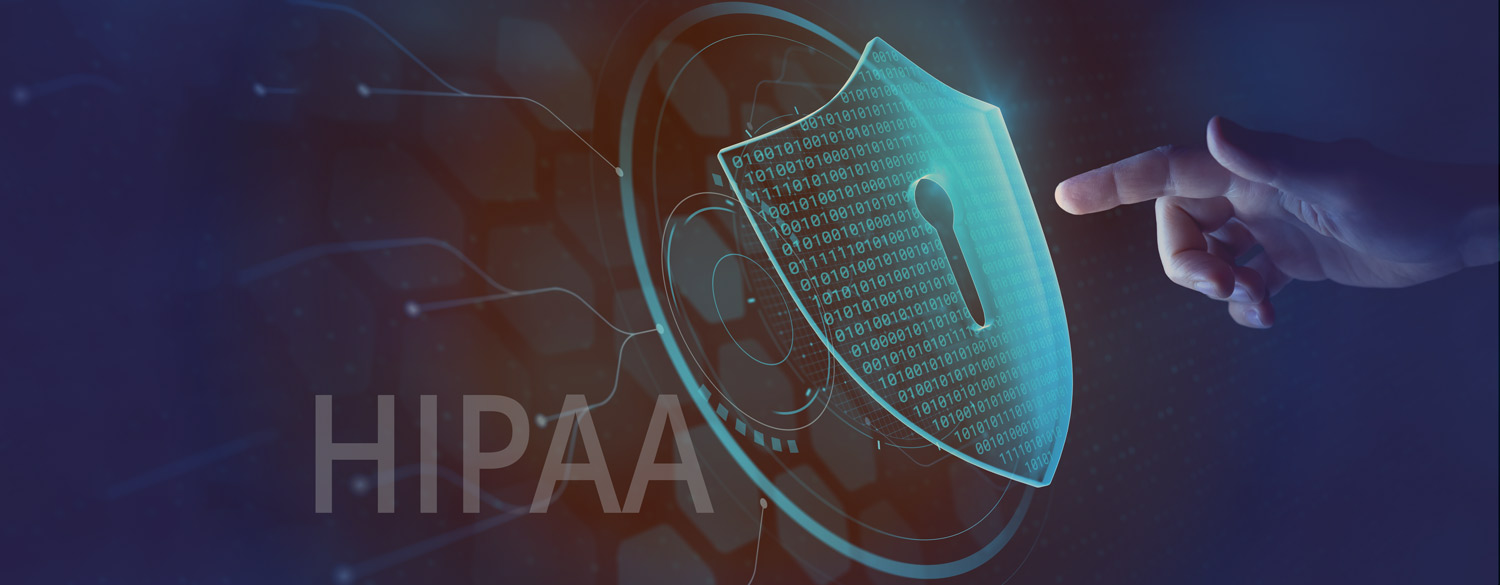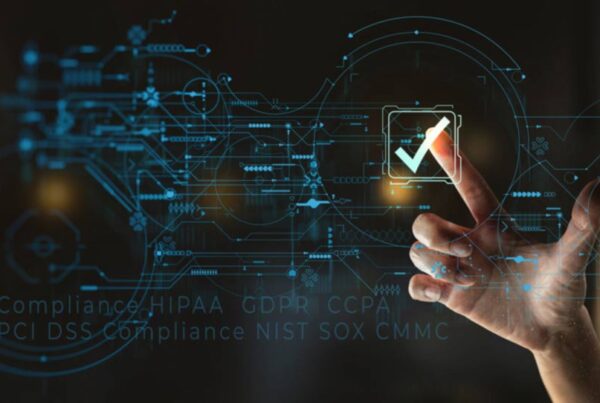For nonprofit organizations, your mission is your number one priority. And you understand that protecting your data and your client’s information is critical for the success of your mission. However, HIPAA compliance and regulations can seem confusing and even daunting for many small to medium-sized nonprofits.
This article is written specifically for nonprofits to help simplify the complexities of HIPAA and get you on the right track to obtaining and maintaining HIPAA compliance.
What is HIPAA?
Understanding the Basics
HIPAA, or the Health Insurance Portability and Accountability Act, is a federal law enacted in 1996. In lay terms, it’s a set of rules designed to protect sensitive patient health information from being disclosed without the patient’s consent or knowledge. Think of HIPAA as a shield, guarding individuals’ medical information and ensuring their privacy in the digital age.
Why Does HIPAA Matter to Nonprofits?
The Relevance of Compliance
You might wonder, “Does HIPAA apply to my nonprofit?” The answer is yes if your organization deals with health or protected health information (PHI) in any capacity.
HIPAA application includes Covered Entities such as nonprofits in healthcare services, health advocacy, or even those managing employee health benefits. But it also includes nonprofits that don’t provide care directly and may be providing services or handling PHI as a Business Associate. For a more detailed description of HIPAA applications for nonprofits, read “Does HIPAA Apply to Your Nonprofit?”
Noncompliance is Not a Viable Option
Compliance is mandatory, not optional. Failing to comply with HIPAA can lead to severe penalties, including hefty fines and damage to your organization’s reputation. Violations can range from $100 per violation to upward of $50,000 per violation.
And Texas is even more challenging. Texas Legislative House Bill 300 (HB300) was passed in 2011, and it amended several Texas laws to increase the protections and security associated with the handling and storage of PHI. HB 300 also added greater accountability for Business Associates with stricter guidelines than HIPAA and granted state agencies the authority to enforce regulations.
HIPAA Requirements: Key Components for Compliance
The Health Insurance Portability and Accountability Act (HIPAA) includes Privacy, Security, and Breach Notification Rules designed to protect the privacy and security of health information and define patients’ rights to their health information. HIPAA establishes standards to safeguard protected health information (PHI) that entities handle if they are a Covered Entity or Business Associate.
HIPAA compliance revolves around several key areas:
Privacy Rule:
This rule mandates the protection of all “individually identifiable health information.” It means keeping health records secure and private, only sharing them when necessary and with proper authorization.
The Privacy Rule protects patient and client PHI while enabling providers to exchange information securely to facilitate coordinated care.
Protected health information (PHI) includes any data held or transmitted in any form, including electronic (ePHI), paper, or verbal. Examples of PHI include information such as name, address, birth date, SSN, patient/client care information, and any payment information. (See more details regarding the 18 HIPAA Identifiers)
Requirements of the Privacy Rule include notification to patients/clients about their privacy rights, adopting privacy procedures and employee training, assigning responsibility to oversee procedures, and securing PHI data.
Security Rule:
The Security Rule involves implementing specific physical, network, and process security measures to ensure electronic Protected Health Information (ePHI) is secure. The Security Rule includes five sections:
General Rule– States that Covered Entities and Business Associates must protect against any reasonably anticipated threats or hazards to the security or integrity of ePHI, and they must implement measures to safeguard data and monitor activity.
Administrative Safeguards– The backbone of the Security Rule, this section states that organizations must designate a security officer, conduct risk analyses, implement security measures, train the workforce, and oversee IT continuity to ensure ongoing compliance.
Physical Safeguards– This section provides for the physical safeguarding of information through facility access controls, workstation controls, workstation security measures, and device and media controls.
HIPAA Safeguards– Designed to ensure everyone accessing ePHI is who they say they are by utilizing access controls, audit controls, integrity controls, person and entity authentication, and transmission security protocols.
Organizational Requirements– This section covers agreements between Covered Entities and Business Associates. It stipulates that the Business Associate complies with applicable parts of the Security Rule, that subcontracted services are disclosed, and that the Business Associate will report any security incident to the Covered Entity.
Breach Notification Rule:
In case of a data breach, HIPAA requires organizations to notify affected individuals and, in some cases, the media and the Department of Health and Human Services.
A breach is considered an unpermitted use or disclosure under The Privacy Rule that compromises the security or privacy of PHI. Breach notifications to authorities must happen without reasonable delay and no later than 60 days after the breach discovery.
The Breach Notification Rule also applies to business associates.
Free, No-obligation HIPAA Compliance Assessment for Nonprofits
Protect your data, clients…and your mission.
The GlacisTech Worry-Free HIPAA Compliance Assessment is an on-site evaluation designed to identify vulnerabilities and provide strategic guidance for achieving HIPAA compliance.
Schedule your Free HIPAA Compliance Assessment for Nonprofits today.
Schedule NowApplying HIPAA in a Nonprofit Setting
Practical Steps Towards Compliance
For a nonprofit, becoming HIPAA compliant involves several practical steps:
- Conduct a Risk Assessment: Understand where ePHI is stored, how it’s used, and where the potential risks lie.
- Implement Safeguards: This can include encryption, secure access controls, and regular audits.
- Train Your Staff: Ensure everyone in your organization understands HIPAA rules and their role in maintaining compliance.
- Develop Policies and Procedures: Create clear guidelines on handling ePHI, including breach response protocols.
The Role of Managed Security Services in HIPAA Compliance
Expertise and Support on Your Compliance Journey
Managing the complex security landscape can be daunting. For nonprofits without in-house HIPAA compliance expertise, partnering with a trusted managed services provider can be invaluable. A Managed Service & Security Provider (MSSP) specializes in understanding these regulations and can offer:
- Customized Solutions: Tailoring IT infrastructure and practices to meet HIPAA standards.
- Ongoing Support and Monitoring: Ensuring your systems stay compliant and secure over time.
- Risk Management: Proactively identifying and addressing potential security risks.
- Training and Education: Providing essential training to your staff on HIPAA compliance.
Embracing Compliance with Confidence
Your Partner in Protecting Sensitive Information
HIPAA compliance is essential to protecting the people you serve and maintaining the integrity of your nonprofit. With the right MSP/MSSP by your side, you can navigate these requirements with ease and confidence.
Remember, compliance is not just about avoiding penalties; it’s about upholding a standard of care and trust in your organization. Let us be your guide and ally in this vital aspect of your nonprofit’s operation.
Together, we can ensure you are compliant, secure, and resilient in the face of ever-evolving digital challenges.
HIPAA Compliance Self-Assessment Checklist
Getting started on your HIPAA compliance journey just got easier.
GlacisTech’s HIPAA Compliance Checklist is designed to help nonprofit organizations complete a self-assessment for compliance readiness.
This essential checklist includes the 6 critical annual audits required by HHS-OCR and simplifies the process into manageable steps and time frames.
Download HIPAA Checklist NowAbout GlacisTech
GlacisTech is a managed service provider (MSP) and managed security solution provider (MSSP) for small to medium-size businesses in the Dallas and North Texas region. GlacisTech helps businesses grow by providing innovative, state-of-the-art IT solutions that allow its customers to reduce network downtime, increase operational efficiencies, and cost-effectively scale their IT to meet the demands of their growing businesses.
GlacisTech’s suite of Worry-Free IT services includes managed IT, cybersecurity, virtual CIO, managed compliance & remediation, and cloud services.
Glacis Technologies, Inc
1130 East Arapaho, Suite 184
Richardson, TX 75081
24/7 Customer Support 469-522-2022
ITsupport@GlacisTech.com






